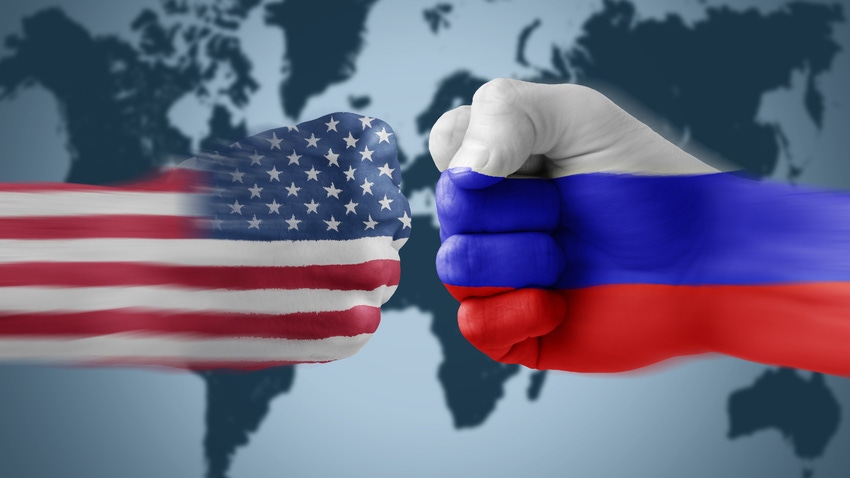What Happens if Russia Catches Up in the AI Race?
Russian President Vladimir Putin will sign a bill to expand generative AI research and scale up supercomputing capacity

At a Glance
- Russian President Vladimir Putin said he will sign a bill outlining a new national strategy on AI development.
- The bill will expand research in generative AI and greatly scale up Russian supercomputing capacity.
- Experts warn that if Russia revs up its much-vaunted scientific prowess in AI, this would pose a threat to world peace.
Even as he fights a grueling war in the Ukraine, Russian President Vladimir Putin nevertheless is stepping up his country’s efforts in the global AI race because he believes the technology is fundamentally important for the efficiency and well-being of their society.
"The implementation of AI in fields such as science, education and public health, and indeed, every area of our lives, opens a new chapter of human existence. ... How can we make our country more efficient and ensure the happiness of our people? This is a question for artificial intelligence," he said at the recently held Artificial Intelligence Journal conference in Moscow.
To that end, "a presidential bill will soon be signed approving a new national strategy for AI development,” Putin said.
The strategy will focus on broadening fundamental and applied research in the field of generative AI and large language models. He also called for scaling up existing Russian supercomputing capacity “at least by an order of magnitude,” which he deems is “critically necessary for the further development of generative AI.”
Putin’s remarks are part of the Kremlin's broader ambition to rekindle its once-vaunted scientific prowess. He emphasized the importance of diversifying the development of AI globally, criticizing the current Western monopoly in this critical technological field.
Existing generative AI models from the West with their English-language datasets are biased since they “simply ignore or cancel” Russian culture, he said, and such “monopolistic dominance” is “unacceptable, dangerous and inadmissible.”
An AI Cold War?
But experts caution that if Russia were to gain a significant lead in this area, it could pose a risk to global peace, even though such a scenario is currently considered improbable.
The Kremlin has earmarked 5.2 billion rubles ($57.4 million) for AI research in 2024. In contrast, the U.S. government's allocation for AI research in 2022 was 50 times greater, although it was still seven times less than what venture capital firms invested in AI in the same year.
Russian leaders believe that being innovative is essential for a strong country and think that new ideas in the military are crucial for Russia's defense in a world where threats are changing, according to a report by the Center for Naval Analysis, a nonprofit think tank.
Some observers see a threat to the West in Russia’s AI ambitions. The United States has long provided strict guidance about AI weapons systems and autonomous vehicles, requiring any potentially lethal system to have a human-in-the-loop decision process. In an interview, tech consultant Richard Boyd mentioned that these guidelines might not apply in Russia.
“However, kinetic AI systems are not the only concern,” he added. “AI used for soft power expression is also a threat. AI can be used in disinformation campaigns to disrupt elections, cause civil unrest, and power autonomous weapons systems and cyberattacks. Any world power that has demonstrated aggressive behavior against other nation-states and who achieves an asynchronous advantage with emerging AI and machine learning will be a disruptive force in the world.”
The Russian Ministry of Defense is turning to AI to enhance data analysis and decision-making capabilities for soldiers in combat, adopting a strategy where humans guide or supervise AI systems for quicker and more effective responses in battle. Some military experts in Russia foresee a future where robots, rather than humans, make critical decisions in combat operations.
Making strides in AI
Russian financial institution Sberbank recently unveiled a new AI model designed to compete with ChatGPT. Named GigaChat, this Russian version of ChatGPT is currently in its early stages and is available only to a select group of users through invitation. (ChatGPT has been prohibited by the Kremlin due to concerns over potential disinformation and criminal misuse.)
Moscow's tech firm Sistemma also unveiled its own version of ChatGPT, named SistemmaGPT. Designed for Russian enterprises and government bodies, Sistemma's AI large language model (LLM) functions exclusively on local servers and in the Russian language. The creators at Sistemma assert that their generative pre-transformer (GPT) model matches the abilities of GPT-3.5, featuring what they describe as "encyclopedic knowledge."
But Boyd said Russia is unlikely to achieve dominance in the AI field any time soon. The primary reasons are reduced access to the requisite computing power to train AI models and training data. After the invasion of Ukraine, NVIDIA announced that it would not sell NVIDIA GPU systems to Russia. Other companies that offer robust computing services have done the same thing.
“Also, most of the large language model training data on the internet is in English,” he added. “And finally, U.S. hardware companies like NVIDIA and software companies like Microsoft, Google, and Apple are still behaving more cooperatively with the United States than with rogue or aggressive nation-states like Russia. That cooperation is precious for maintaining a competitive edge for the U.S.”
For Russia to catch up with the United States and NATO in AI innovation and capacity, it would need ready access to vast amounts of computing power and storage of large training data sets, Boyd noted.
“Russia has historically had a robust science and technology capacity, but it has been reduced in the aftermath of the invasion of Ukraine,” he added.
Alyona Medelyan, the CEO of AI company Thematic, pointed out that advanced AI is already available as open source, and everyone can have access to the algorithms. But she said to apply the information correctly, special skills are required.
“A majority of the best scientists in Russia left to live in the U.S. and Europe,” Medelyan added. “Those who remained are more likely to be resistant to propaganda than an average Russian citizen, but it is not a given. It is best to act as if Russia already has access to advanced AI.”
Read more about:
ChatGPT / Generative AIAbout the Author(s)
You May Also Like


.jpg?width=700&auto=webp&quality=80&disable=upscale)
.jpg?width=700&auto=webp&quality=80&disable=upscale)

.jpg?width=300&auto=webp&quality=80&disable=upscale)
.jpg?width=300&auto=webp&quality=80&disable=upscale)
.jpg?width=300&auto=webp&quality=80&disable=upscale)
.jpg?width=300&auto=webp&quality=80&disable=upscale)
.jpg?width=300&auto=webp&quality=80&disable=upscale)